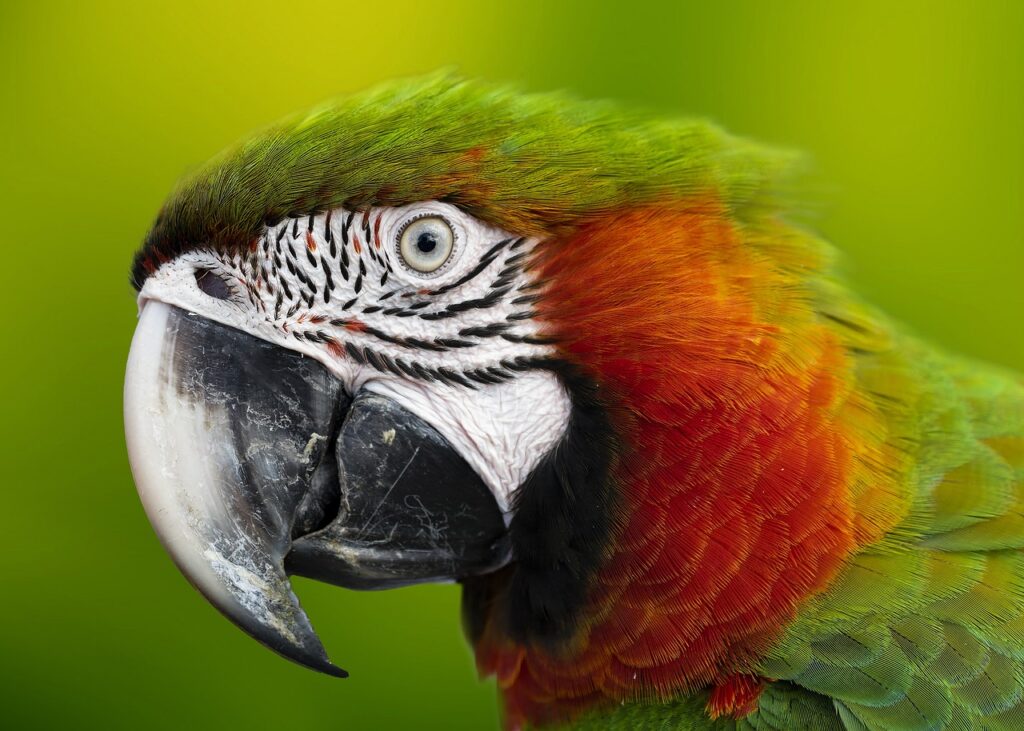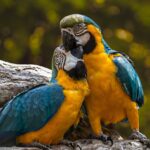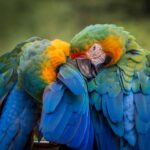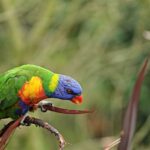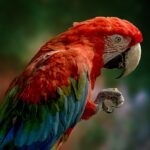Can Parrots Eat Cheese?
When it comes to the question of whether parrots can eat cheese, it’s important to understand that cheese is not recommended as a part of their diet. While parrots are omnivores and can consume a variety of foods, cheese can potentially pose dangers to their health.
The Dangers of Cheese for Parrots
Cheese can be harmful to parrots due to several reasons. Firstly, it contains high levels of fat and cholesterol, which can lead to obesity and related health problems in these birds. Additionally, cheese is typically processed and may contain additives such as salt, spices, or flavorings, which can be harmful to parrots and cause digestive issues.
Furthermore, cheese is a dairy product that contains lactose. Parrots, like many other birds, lack the necessary enzyme, lactase, to break down lactose. Consuming cheese may result in lactose intolerance symptoms, including diarrhea, bloating, and abdominal discomfort.
Potential Symptoms or Reactions
If a parrot consumes cheese, it may exhibit various symptoms or reactions. These can include gastrointestinal distress, such as vomiting or diarrhea, due to the high fat content and lactose intolerance. In some cases, birds may also develop allergic reactions to specific ingredients present in the cheese, leading to skin irritations or respiratory problems.
Additionally, excessive consumption of cheese can contribute to nutrient imbalances in a parrot’s diet. Since cheese lacks essential vitamins and minerals necessary for avian health, an overreliance on cheese can lead to deficiencies and negatively impact their overall well-being.
Healthier Alternatives for Parrots
If you’re looking for suitable treats or foods for your parrot, there are alternatives to cheese that are safer options. Fresh fruits and vegetables, such as apples, carrots, and leafy greens, provide a nutritional boost without the potential risks associated with cheese. Seeds, nuts, and grains can also be a part of a balanced parrot diet, offering beneficial nutrients and enrichment.
Tips for Preventing Access to Cheese
It’s essential to take preventive measures to ensure your parrot doesn’t have access to cheese. Store cheese securely in closed containers or refrigerators, away from your parrot’s reach. Make sure to educate family members or other household members about the potential dangers of feeding cheese to parrots, emphasizing the importance of responsible pet care.
Creating a dedicated feeding area for your parrot and providing them with a variety of bird-safe treats will help divert their attention from seeking out cheese. Regularly monitor and evaluate your parrot’s diet to ensure it’s well-balanced and suitable for their specific needs.
Conclusion
In conclusion, it’s advisable to refrain from feeding cheese to your parrot due to potential health risks and adverse reactions. Opting for healthier alternatives like fresh fruits, vegetables, seeds, and grains ensures a well-rounded and nutritionally balanced diet for your feathered companion. By taking precautions to prevent access to cheese, you can prioritize the well-being of your parrot, promoting responsible pet care practices.

